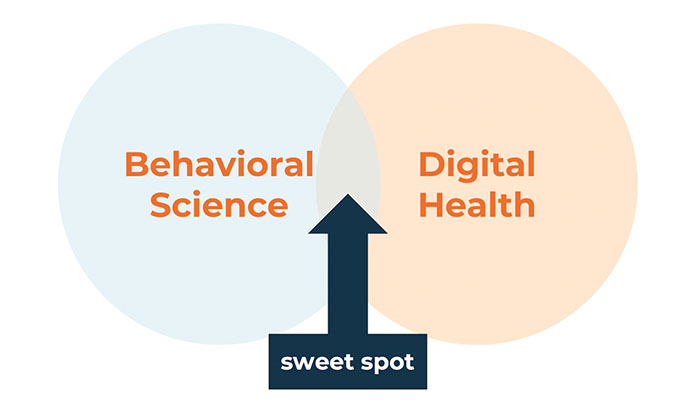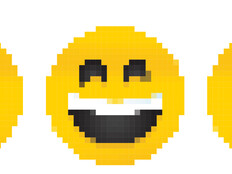Digital Health’s Secret Weapon: Behavioral Science
With the ubiquity of smartphones, and the fact that everyone (even grandma) carries their devices with them everywhere, we also carry with us the perfect opportunities for health management. With mobile devices in the right place — that’s everywhere — behavioral science can help make sure interventions are reaching us at the right times.
Technology can be used to reach out with timely interventions, and behavioral science demonstrates how to do so effectively. Your phone can remind you to exercise, or call you out if you don’t. It can let your friends know when you skip the gym if you are brave enough to ask it to. Your phone can even dole out punishments if you fail to meet your health goals. It can keep track of your progress, and that data can be used to inform an evolving weight loss plan. And since your phone can keep you on track toward losing those pounds, you don’t need to rely on fallible human devices, like memory or motivation.
VIDEO: Check out how health systems are tapping data to improve care!
Behavioral Science, Digital Tools Pair to Drive Health Outcomes
Behavioral science asks some crucial questions: What is the health behavior we want to exhibit? How does the behavior fit into the context of our lives? What frictions stand in the way of exhibiting that behavior? How naturally motivated are we and how can we fuel more motivation?

The big secret that behavioral scientists incorporate into every analysis is that human behavior is a function of the person and their environment, and that in order to truly be helpful to patients, we have to integrate health solutions within the context of their lives.
Only then can we make technologies that work within those contexts, because digital health without behavioral science simply misses the point. A Fitbit on the nightstand doesn’t do anyone’s health much good, just like a tennis racket in your garage doesn’t make you a better tennis player.
With technology to bring caretakers to the right place at the right time, and with behavioral science to lay the groundwork on how best to intervene, we can more effectively help people reach their health goals. The real opportunity lives at the sweet spot, right where behavioral science and technology meet.
So, if you’re a digital health innovator who wants to change the world, look into how to incorporate the context of people’s lives into your product to balance the data with the digital.









